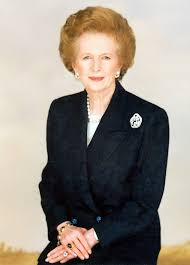The Enduring Legacy of Margaret Thatcher

Introduction
Margaret Thatcher, the first female Prime Minister of the United Kingdom, served from 1979 to 1990 and is a figure of significant historical relevance. Known as the “Iron Lady,” she was a key figure in British politics, implementing transformative policies that shaped not just the nation but also influenced global political dynamics.
Thatcher’s Policies and Their Impact
Thatcher’s government focused on free-market policies, deregulation, and a strong anti-communist stance during the Cold War. Her approach led to significant reductions in state intervention and control, which she believed would lead to economic growth and individual freedom. The implementation of these policies, notably through measures such as privatisation of state-owned industries and reducing the power of trade unions, sparked both fervent support and fierce opposition among the British populace.
The Rise of Neoliberalism
Thatcher’s policies are often credited with popularising neoliberalism in the UK and many parts of the world. She believed that the market should dictate economic outcomes rather than the government. This approach has had long-lasting effects, with many of her policies influencing political leaders globally, including in the United States, where they inspired Ronald Reagan’s policies.
Challenges and Criticism
However, Thatcher’s tenure was not without controversy. Her cuts to public spending and support for the poll tax led to significant protests and divisions within the country. The impact of her policies on social inequality continues to be a debated topic today. Many argue that while the economy prospered, the social fabric of the UK was damaged, leading to the rise of social unrest and economic disparity in certain regions.
Legacy and Significance
After resigning in 1990, Thatcher’s legacy remained a hot topic in political discourse. Her role in the cold war, economic reforms, and staunch nationalistic policies still resonate in today’s political environment. The Conservative Party often references her leadership style and policies, while her influence is seen in subsequent global political movements that advocate for similar economic strategies.
Conclusion
Margaret Thatcher’s contributions to British politics and her influence on global policy remain significant. As nations today navigate complex political landscapes shaped by economic challenges, the implications of her leadership style and economic strategies are still relevant. Continual evaluations of her policies will ensure that her influence is understood and contextualised within both historical and current frames.
